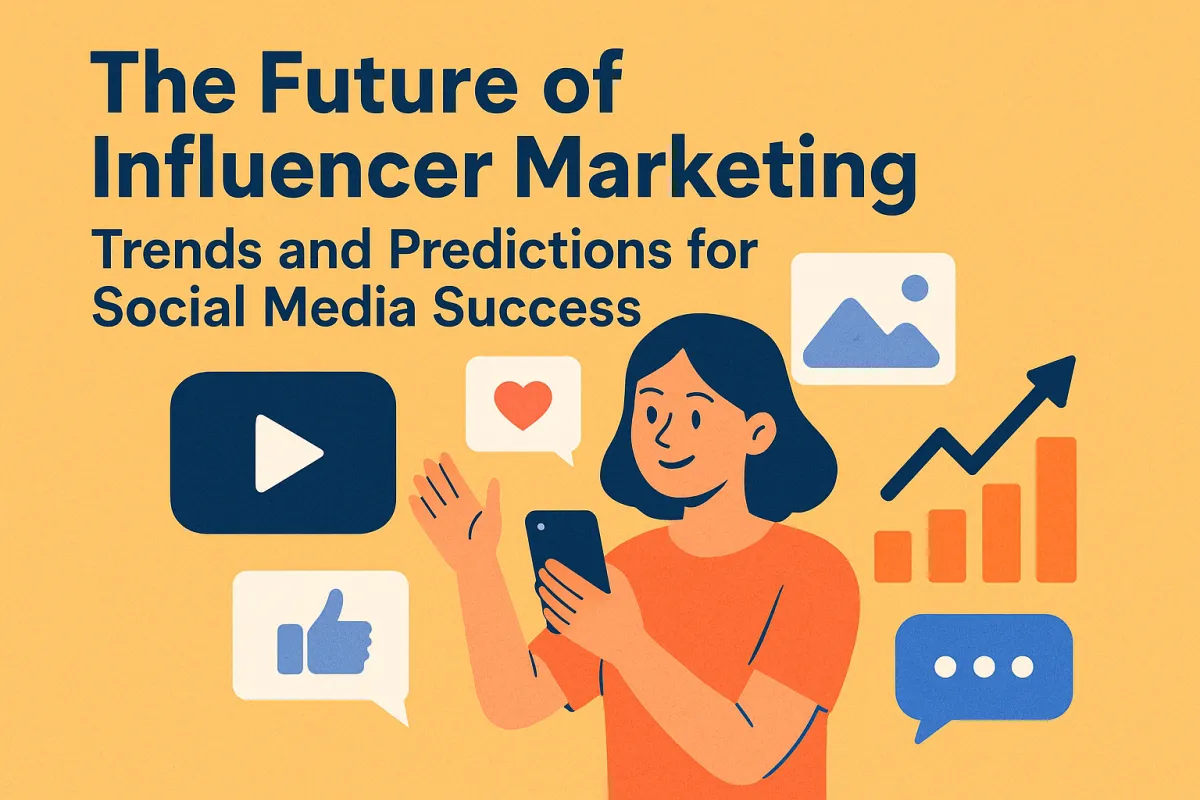
The Future of Influencer Marketing: Trends and Predictions for Social Media Success
Introduction
Influencer marketing has rapidly evolved from simple product shout-outs to a multi-billion-dollar industry shaping consumer behavior. As social media platforms grow, algorithms shift, and audience expectations change, the future of influencer marketing looks even more dynamic. In this article, we’ll explore the emerging trends and predictions that will define influencer marketing success in the coming years.
1. Rise of Micro and Nano-Influencers
1.1 Why Smaller Creators Are More Effective
Higher engagement rates compared to celebrity influencers.
More relatable and authentic connections with their audiences.
Affordable partnerships for small and medium-sized businesses.
1.2 Predictions for 2025
Brands will prioritize community-driven influencers over follower count.
Expect long-term partnerships with micro-influencers for consistent brand storytelling.
2. Authenticity Over Perfection
2.1 The Shift in Audience Expectations
Consumers now value raw, real, and unfiltered content.
Overly polished posts are being replaced with genuine storytelling.
2.2 Predictions
“Behind-the-scenes” and “day-in-the-life” content will dominate.
Influencers will collaborate with brands that align with their personal values, not just those offering the highest paycheck.
3. Video and Short-Form Content Take the Lead
3.1 Platforms Driving the Change
TikTok, Instagram Reels, and YouTube Shorts are setting the tone.
Audiences prefer bite-sized, entertaining, and informative videos.
3.2 Predictions
Brands will design influencer campaigns centered around short-form video challenges and trends.
Livestream shopping will continue to rise, blending entertainment with instant purchasing.
4. AI and Virtual Influencers
4.1 The Role of Technology
AI-powered influencers are emerging as unique brand ambassadors.
Virtual influencers can engage global audiences without human limitations.
4.2 Predictions
Hybrid campaigns combining real influencers and virtual personalities.
AI tools will help brands analyze engagement data and predict influencer ROI more effectively.
5. Greater Emphasis on ROI and Data
5.1 Why Measurement Matters
Businesses want to see real returns beyond likes and shares.
Metrics like conversion rates, affiliate sales, and customer lifetime value will be prioritized.
5.2 Predictions
Influencer marketing platforms will integrate deeper with CRM and analytics tools.
Brands will demand more transparency and reporting from influencer collaborations.
6. Social Commerce and Influencer-Driven Sales
6.1 The Evolution of Social Shopping
Instagram Shops, TikTok Shop, and YouTube Shopping integrations are redefining e-commerce.
Influencers are becoming direct sales drivers, not just brand promoters.
6.2 Predictions
“Shop Now” links within influencer content will become standard.
Influencer affiliate programs and performance-based partnerships will grow.
7. Diversity, Inclusion, and Values-Driven Marketing
7.1 Shifting Consumer Priorities
Audiences expect influencers to represent diverse voices and causes.
Brands that ignore inclusivity risk alienating consumers.
7.2 Predictions
Influencers who advocate for sustainability, inclusivity, and social responsibility will dominate.
Cause-driven influencer campaigns will become a major marketing strategy.
Conclusion
The future of influencer marketing is more authentic, data-driven, and community-focused than ever before. As brands look ahead, success will depend on choosing the right voices, embracing new technologies, and aligning with values that matter to consumers.
For businesses and marketers, the key to social media success lies not in chasing trends blindly, but in building genuine, long-term relationships with influencers who truly connect with their audience.